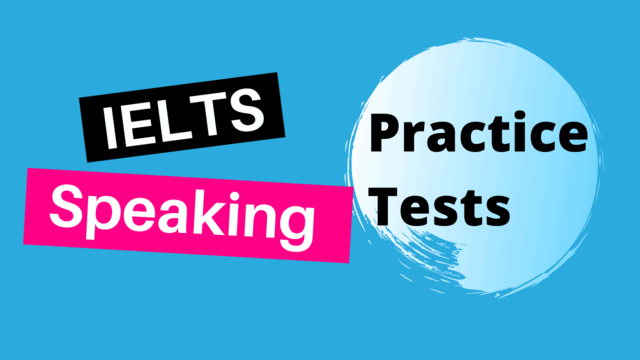In the IELTS Speaking test, your ability to communicate in English is assessed over three parts: Part 1 (Introduction and Interview), Part 2 (Long Turn), and Part 3 (Discussion). Culture is a common topic that covers a wide range of subtopics such as traditions, heritage, art, and the influence of globalization. Here’s a sample IELTS Speaking test on Culture, including 10 questions with answers, and tips to help you achieve a high score.

Part 1: Introduction and Interview
- Question: Can you tell me about a cultural tradition in your country?
- Answer: In my country, one of the most cherished traditions is the Lunar New Year celebration. Families come together to clean their homes, prepare special meals, and give “lucky money” to children. It’s a time for reconnecting with family and expressing hope for good fortune.
- Question: Do you think the Internet has affected how people view their own culture?
- Answer: Yes, I think the Internet has made people more aware of their own culture in comparison to others. It allows them to share traditions online, but it has also introduced them to diverse global perspectives, which can sometimes lead to adopting other cultural practices.
- Question: How important is it for young people to learn about their culture?
- Answer: It’s very important. Learning about one’s culture helps young people understand their roots and identity, which fosters a sense of belonging. It also teaches them to appreciate their heritage and respect traditions.
- Question: Have you ever participated in a cultural festival?
- Answer: Yes, I’ve participated in local cultural festivals like our Harvest Festival, where people gather to celebrate the season with music, dance, and food. It’s a great way to enjoy traditional performances and connect with community members.
Part 2: Long Turn
- Question: Describe a cultural activity you enjoy. You should say:
- what the activity is
- when you usually do it
- why you enjoy it
- and explain how it is connected to your culture.
- Answer: A cultural activity I enjoy is traditional folk dancing, which I participate in during national holidays and community events. Folk dancing represents our history and reflects the unique spirit of my country. I enjoy it because it allows me to express my cultural identity through movement, and I feel connected to generations before me who also danced this way.
Part 3: Discussion
- Question: How has globalization affected traditional culture in your country?
- Answer: Globalization has influenced our culture significantly. While it has introduced new ideas, fashion, and food, it has also led to the decline of some traditional practices. Younger generations are adopting more international trends, which can sometimes overshadow local traditions.
- Question: What role does the Internet play in preserving culture?
- Answer: The Internet plays a vital role in preserving culture by allowing people to share and archive cultural practices online. Many traditions, songs, and dances are now accessible globally, which helps preserve them for future generations. It also allows people to stay connected to their culture no matter where they are in the world.
- Question: Do you think culture can influence the way people behave?
- Answer: Yes, definitely. Culture shapes values, beliefs, and customs, which in turn influence behavior. For example, in some cultures, people show respect by bowing, while in others, they might shake hands or give a slight nod. These behaviors reflect deeply held cultural values.
- Question: How do you think technology has changed the way people experience art and culture?
- Answer: Technology has made art and culture more accessible. People can now view exhibitions online, attend virtual concerts, and learn about different cultures through digital platforms. While this makes culture more available to everyone, it can sometimes reduce the authenticity of in-person experiences.
- Question: Do you think governments should protect cultural traditions? Why or why not?
- Answer: Yes, I believe it’s important for governments to protect cultural traditions because they are part of national identity and history. Cultural heritage can foster national pride and unity, so governments should support traditional festivals, language preservation, and arts funding to keep these traditions alive.
Tips for Scoring High in IELTS Speaking
- Use Clear Pronunciation and Expressive Intonation
Pronunciation and intonation are key to a high IELTS Speaking score. Practice speaking with clear pronunciation and use intonation to convey enthusiasm or emphasis, making your answers sound more natural. - Expand Your Vocabulary on Cultural Topics
For a topic like culture, use terms such as “heritage,” “globalization,” “identity,” “traditions,” “authenticity,” and “preservation.” Avoid repeating basic words and aim to use a variety of vocabulary to showcase your language skills. - Organize Your Answers Logically
Provide clear and structured responses by beginning with a main point, adding examples or explanations, and concluding if needed. This structure makes it easier for examiners to follow your thoughts and shows coherence. - Use a Range of Grammar and Sentence Structures
Demonstrate grammatical range by using conditional phrases (“If cultural traditions aren’t preserved, they could be lost over time”) and passive voice (“Many traditions are being preserved online”). Using different sentence structures shows your command of grammar. - Maintain Fluency and Keep Talking
Avoid long pauses and stay fluent even if you feel unsure. You can take a moment to think, but try to continue speaking with confidence. Practicing cultural topics will help you stay fluent even with challenging questions.
By following these tips and practicing with the sample questions, you’ll strengthen your speaking abilities, vocabulary, and overall confidence. Preparation is essential to achieving a high score in the IELTS Speaking test, especially on topics like culture. Good luck!
